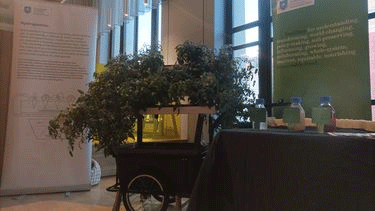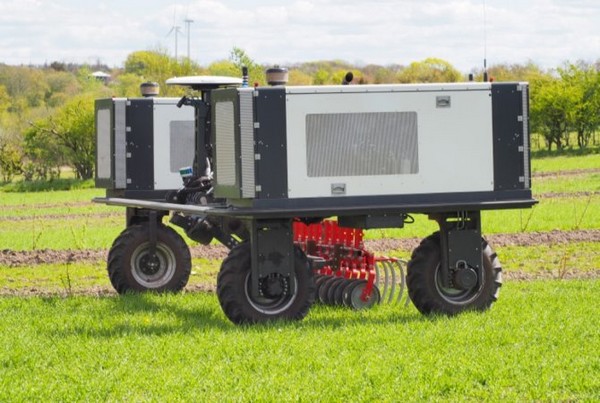Food insecurity is one of the most pressing global challenges, affecting millions of people across the world. In an effort to tackle this issue, researchers from the University of Sheffield’s Institute for Sustainable Food showcased their innovative hydroponic growth system at the Journey of Life Lates event. The event, which focused on global health challenges, demonstrated how advanced agricultural technologies like hydroponics could play a pivotal role in alleviating malnutrition and hunger in environments where traditional farming methods are no longer viable.
Hydroponics, a method of growing plants in nutrient-rich water without soil, is gaining recognition for its ability to produce crops in resource-scarce environments. The hydroponic system presented by the Sheffield team, led by researchers Jake Nickles, Dr. Moaed Al Meselmani, and Toby Evans, was built as part of the H3 Project’s Work Package 2—Hybrid Hydroponic Horticulture. What made this system unique was its portability, being ingeniously designed within a bike trailer for demonstration purposes.
The exhibit at the Journey of Life Lates event highlighted how hydroponics can offer sustainable solutions to growing food in challenging conditions. The system featured four distinct layers, representing different soil types: standard soil, degraded soil replicating conditions in Jordan’s Zaatari refugee camp, mineral wool, and polyurethane foam. These layers were used to grow tomato and basil plants, showing visitors how varying nutrient levels in soil affect plant growth.
Zaatari, the world’s largest refugee camp for people displaced by the Syrian Civil War, faces extreme environmental challenges, including scorching summer temperatures, saline and nutrient-poor soil, and limited water resources. In collaboration with the camp’s residents, the University of Sheffield has trained locals in the basic principles of hydroponics, allowing them to grow fresh produce for personal consumption and sale. The hydroponic system not only bypasses the issue of poor soil but also uses up to 90% less water than traditional farming, a critical advantage in water-scarce regions.
According to Dr. Moaed Al Meselmani, a researcher at the University of Sheffield, “There is an urgent need for a more efficient and waste-free agricultural system, and innovation and technology will play a major role in bringing about this change and ensuring that those who are hungry or malnourished have access to wholesome food.” His statement underscores the potential of hydroponics to revolutionize the agricultural landscape by providing a sustainable, scalable solution to food production in areas where traditional farming is no longer possible.
In addition to the hydroponic exhibit, the event featured the work of United Against Malnutrition and Hunger (UAMH), which demonstrated the devastating physical impact of malnutrition. Through a series of visual displays, including weight comparisons of nourished versus malnourished children and height charts showing stunted growth, visitors were given a visceral understanding of how poor nutrition during pregnancy and early childhood can lead to irreversible damage. UAMH also showcased solutions like Ready-to-Use Therapeutic Food (RUTF) and Multiple Micronutrient Supplements (MMS), which are vital in treating malnutrition in both children and mothers.
The interactive nature of the exhibit allowed visitors not only to learn about the technology but also to experience it firsthand. Fresh produce grown in the hydroponic system was available for tasting, and visitors were encouraged to take home zines that explained the basics of hydroponics, its advantages, and even instructions on building DIY systems. These zines were created by local Sheffield artist Rosie Murrell and included quizzes and illustrations to engage readers further.
The collaborative efforts between the University of Sheffield and UAMH, as well as the ongoing research within the Institute for Sustainable Food, highlight the importance of interdisciplinary approaches to solving global problems. By merging agricultural innovation with public health strategies, these organizations are providing viable solutions to some of the most critical issues facing the world today—food insecurity and malnutrition.
Hydroponics presents a promising solution for growing food in nutrient-poor and water-scarce regions, as demonstrated by the University of Sheffield’s innovative system. By creating alternative methods of food production, especially in challenging environments like refugee camps, hydroponics can address global food insecurity and malnutrition. The Journey of Life Lates event underscored the importance of sustainable agricultural innovations and interdisciplinary collaborations in tackling hunger, promoting food security, and ensuring healthier futures for vulnerable populations.












